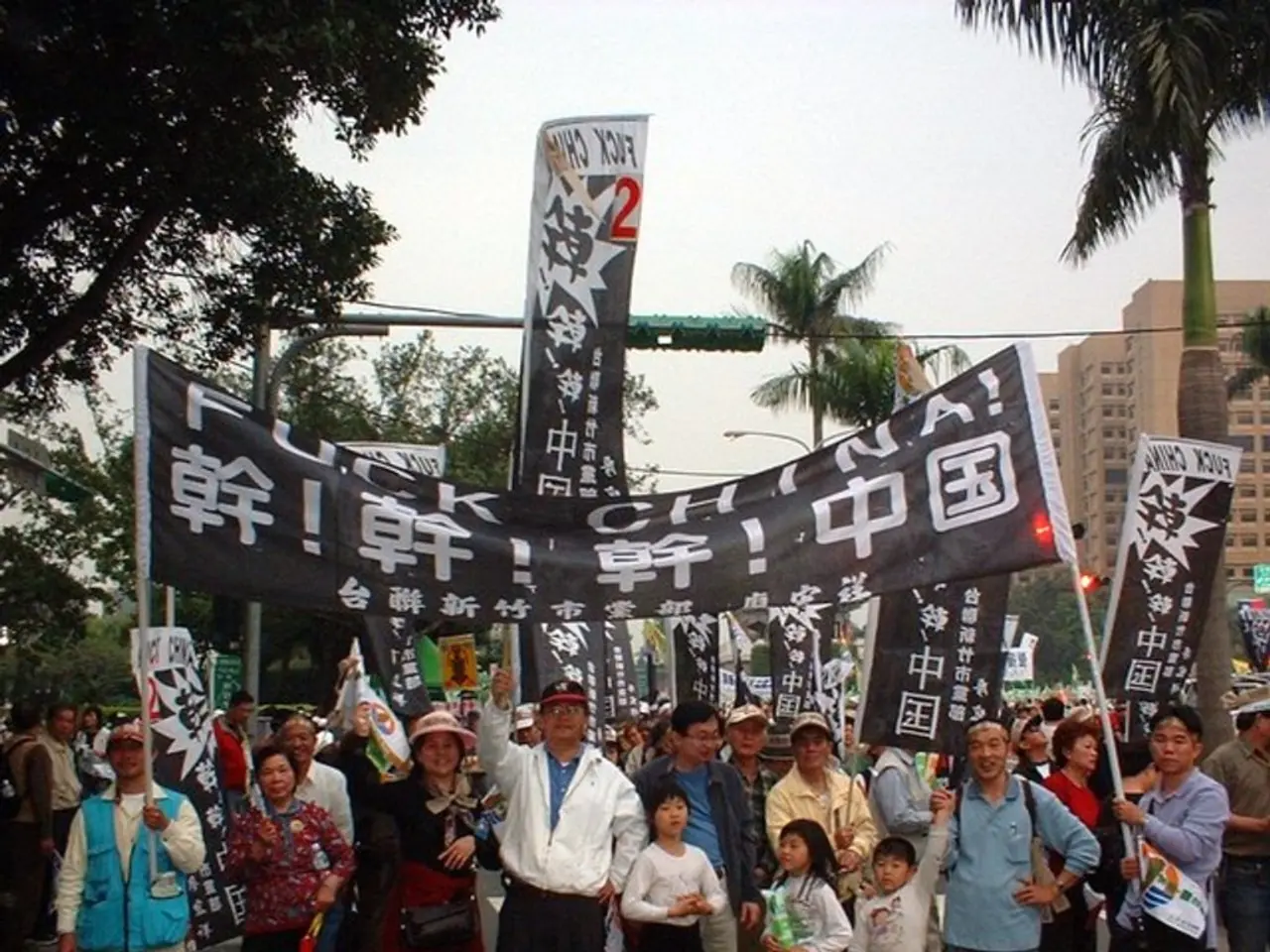Non-governmental organizations in Georgia defy the regulation known as the "Foreign Agents" law
Georgian NGOs Oppose "Foreign Agents Registration Act" Amidst Accusations of Non-Compliance
Several Georgian non-governmental organizations, including the Civil Society Foundation, Sapari, Transparency International Georgia, Media Development Foundation, ISFED, and Social Justice Center, have found themselves in a heated dispute with the Anti-Corruption Bureau over the enforcement of the "Law on the Registration of Foreign Agents."
These organizations, which work tirelessly to protect the rights of women, children, workers, persons with disabilities, internally displaced persons, and all oppressed individuals, have vowed to fight until Georgia becomes a free, democratic, and EU-member state. However, they are now facing accusations of violating this law and have received new letters from the Anti-Corruption Bureau on August 11, warning of potential criminal liability.
The organizations have accused the authorities of aiming to dismantle democracy in the style of Putin's Russia. They argue that the law, often referred to as the Foreign Agents Registration Act (FARA), is a threat to their independence, stigmatizes them as foreign agents, and imposes severe legal penalties.
The Georgian version of FARA, critics claim, is more akin to Russia's draconian foreign agent laws, which are used to stigmatize and suppress independent media and civil society. NGOs fear that the law will undermine their credibility and independence, similar to how it has been used in Russia to suppress dissenting voices and restrict civil society activities.
Violations of Georgia's FARA can lead to severe penalties, including up to five years in prison or a significant fine. This creates a chilling effect on NGOs, limiting their ability to operate freely. The legal framework is perceived as overly broad, allowing for arbitrary enforcement and targeting of organizations based on political considerations rather than clear legal criteria.
Critics point out that the US FARA has not been used to target civil society or media organizations within the United States. This contrasts with Georgia's application, where NGOs are being scrutinized for receiving foreign funding. The US FARA is narrowly focused on lobbying activities directly related to foreign governments, whereas Georgia's law casts a wider net, potentially affecting human rights, election monitoring, and other activities not directly linked to foreign governments.
The organizations claim that they are not required to register under the Georgian foreign agents law, based on the standards of the US Foreign Agents Registration Act (FARA). They have stated that they will continue their work, despite the perceived persecution, and will not abandon the Georgian people. In response to the accusations, the organizations have vowed to submit the "corresponding legal documentation" to the Anti-Corruption Bureau to demonstrate that they are not required to register under the Georgian foreign agents law.
The organizations have reiterated their refusal to register under the 'Law on the Registration of Foreign Agents,' describing it as a 'Russian-style' law. They operate independently and are Georgian non-governmental organizations. The letters demanded explanations as to why the organizations have not registered on the 'Registry of Foreign Interest Entities.'
The enforcement of this law contributes to democratic backsliding in Georgia, marked by increased repression of civil society, media, and political opposition. This undermines Georgia's aspirations to align with European democratic standards. The organizations accused the Georgian authorities of following the Kremlin's playbook in their treatment of independent NGOs and free media.
- The ongoing dispute between Georgian NGOs, such as the Civil Society Foundation and Transparency International Georgia, and the Anti-Corruption Bureau over the "Law on the Registration of Foreign Agents" is a matter of policy-and-legislation and politics.
- The Georgian NGOs, which are working towards a free, democratic, and EU-member state, fear that the enforcement of the "Law on the Registration of Foreign Agents" threatens their independence, stigmatizes them, and may lead to criminal liability, a concern that falls under general-news.








